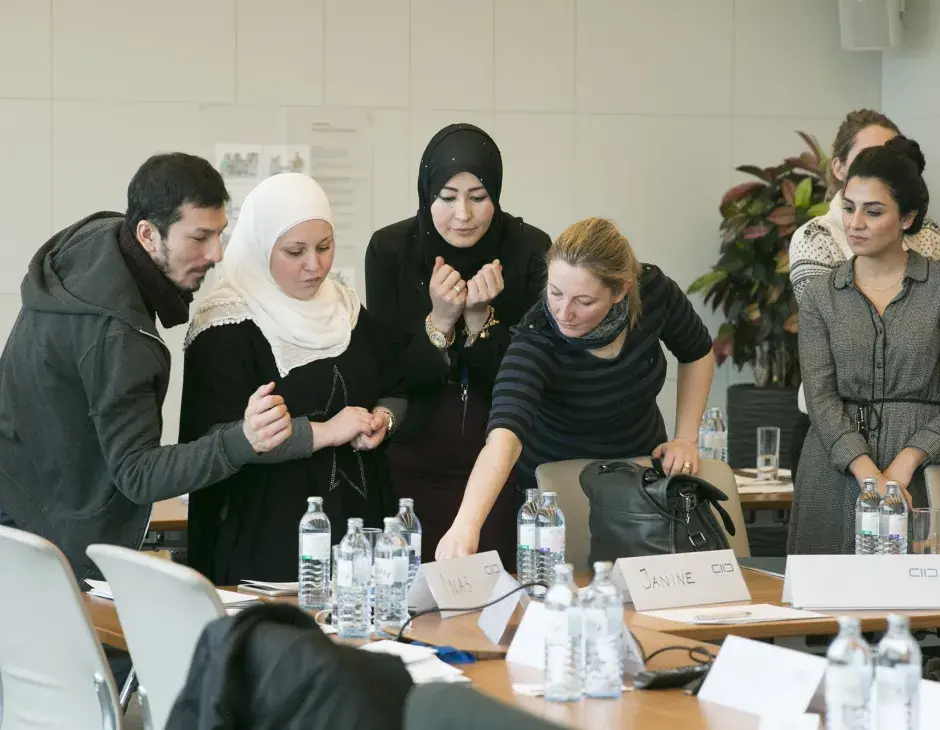The International Dialogue Centre (KAICIID) is completing the training of a team of dialogue facilitators as part of the Vienna Dialogue Facilitators Pilot project. The KAICIID dialogue facilitators are Austrian women with multicultural backgrounds who will be leading dialogue sessions among asylum seekers, recognised refugees and members of the host communities about integration-related themes.
The facilitators will strengthen intercultural and interreligious dialogue to build understanding about integration and related topics with a special focus on women and girls. Newcomers will be encouraged to be open to, and proactive about, their own integration processes. From this experience and training, the facilitators will have the skills to lead dialogue sessions, facilitate communication between refugee girls and women and their support communities, and can offer their expertise and services to Austrian institutions.
The first phase of the programme was a month-long series of intensive trainings for the dialogue facilitators, who will be equipped with the tools to understand identity and conflict, the role of dialogue, and the practice of facilitating dialogue among asylum seekers and recognized refugees. The facilitators visit Vienna-based institutions that play key roles in providing various educational, employment, health or other services to refugees or members of migrant communities in order to be able to refer beneficiaries to appropriate service providers.
Training sessions are led by KAICIID Senior Adviser Dr. Patrice Brodeur, as well as KAICIID Senior Programme Manager Anas Alabbadi, in inter-worldview dialogue, religion and conflict, peace and conflict resolution, dialogue design and facilitation. They also received a two-day training in Conflict Sensitive Refugee Work (Konfliktsensitive Flüchtlingsarbeit) from experts at the Berghof Foundation, which covers aspects of conflict analysis, de-escalation and non-violent communication through the lens of refugee work.
The facilitators began working with beneficiaries in March 2017, facilitating dialogue. As they gain specific core experiences, the facilitators can offer civil society and governmental institutions expertise in dialogue mediation should intercultural or interreligious conflict arise. In six months, the facilitators will return to KAICIID for further training and will design dialogue projects that bring together refugees and members of the hosting communities in Austria.

